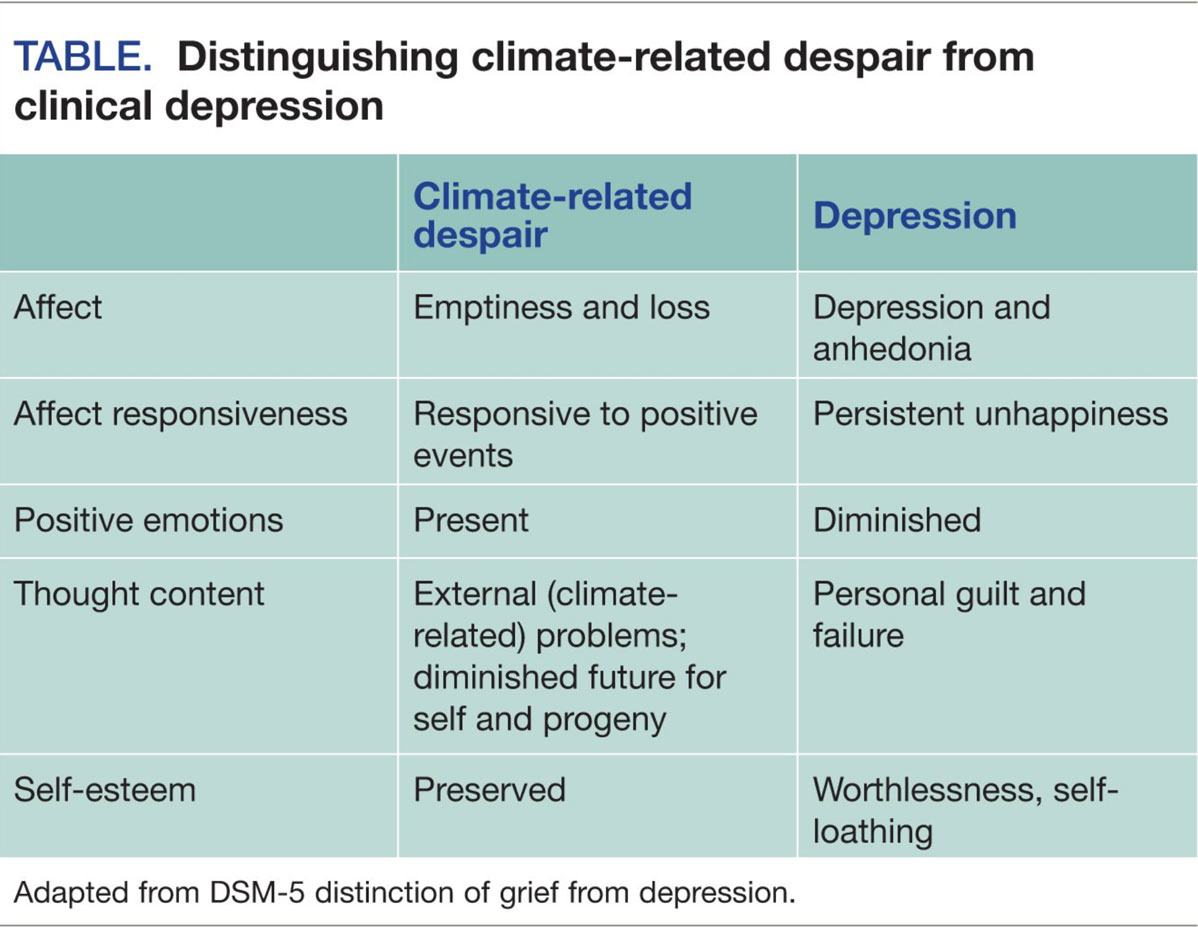
Yes, according to Psychiatric Times Editor-in-Chief Allan Tasman, MD, who writes “one of the most important issues of our time regarding human health and mental health is the impact of climate change.”
David A. Pollack, MD, professor at Oregon Health and Science University agrees: “The mental health consequences [of climate change] are also vast, pervasive, and likely to last longer than most other impacts on health.”
Psychological Impact of Climate Change
Facing an uncertain future can upend even the most stable person. As more scientists warn of our planet’s destruction, feelings of helplessness and fear can grow.
Just the scale of the climate change threat is causing people mental health problems.
A 2018 study published in the Proceedings of the National Academy of Sciences of the United States of America (PNAS) paints the picture. The study showed that just a one-degree Celsius increase in U.S. temperature over a five-year period was associated with a two-percentage point increase in self-reported mental health issues.
The American Psychological Association even termed “climate-related despair” as a distinct mental health condition because climate change can cause people intense stress and anxiety. The reason for this is the sweeping impact it could have on daily life. Climate change impacts “agriculture, infrastructure and livability, which in turn affect occupations and quality of life and can force people to migrate.”

The most recent UN Global Climate report stated that the warming planet is causing more natural disasters. These can take the form of more powerful tornados, stronger hurricanes, with flooding occurring in some places while intense droughts occur in others. These events caused by climate change can serve as a mental “tipping point,” where high levels of stress may lead to substance abuse, anxiety disorders and depression.
The Difference Between Climate-Based Despair & Clinical Depression
Your feelings about climate change can be overwhelming with so many news reports and political actions telling of its devastating impact, but how can you tell when your feelings about climate change might lead to clinical depression? The American Psychiatric Association’s most recent diagnostic manual, the DSM-5, provides an outline.
Simply put, depression is long-lasting sadness that removes a person’s ability to experience pleasure in other aspects of life. While emptiness and loss can accompany climate-related despair, a person who is not clinically depressed may still experience joy and have self-esteem preserved.

Seeking professional help should be one of the first steps if these depression symptoms last longer than two weeks.
You may feel helpless if you’re struggling emotionally due to the effects of climate change. You are not alone. Seek professional help and learn more about coping with the psychological effects of natural disaster on our blog.
NOTE: If you are experiencing emotional distress due to a natural disaster, please call the National Disaster Distress Helpline. This toll-free, multilingual, crisis support service is available 24/7 via telephone (1-800-985-5990) and SMS (text ‘TalkWithUs’ to 66746).
Our articles are for informational purposes only and are reviewed by our Medical Information team, which includes PharmDs, MDs, and PhDs. Do not make any changes to your current medications or dosing without consulting your healthcare provider.
The GeneSight test must be ordered by and used only in consultation with a healthcare provider who can prescribe medications. As with all genetic tests, the GeneSight test results have limitations and do not constitute medical advice. The test results are designed to be just one part of a larger, complete patient assessment, which would include proper diagnosis and consideration of your medical history, other medications you may be taking, your family history, and other factors.
If you are a healthcare provider and interested in learning more about the GeneSight test, please contact us at 855.891.9415. If you are a patient, please talk with your doctor to see if the GeneSight test may be helpful.





